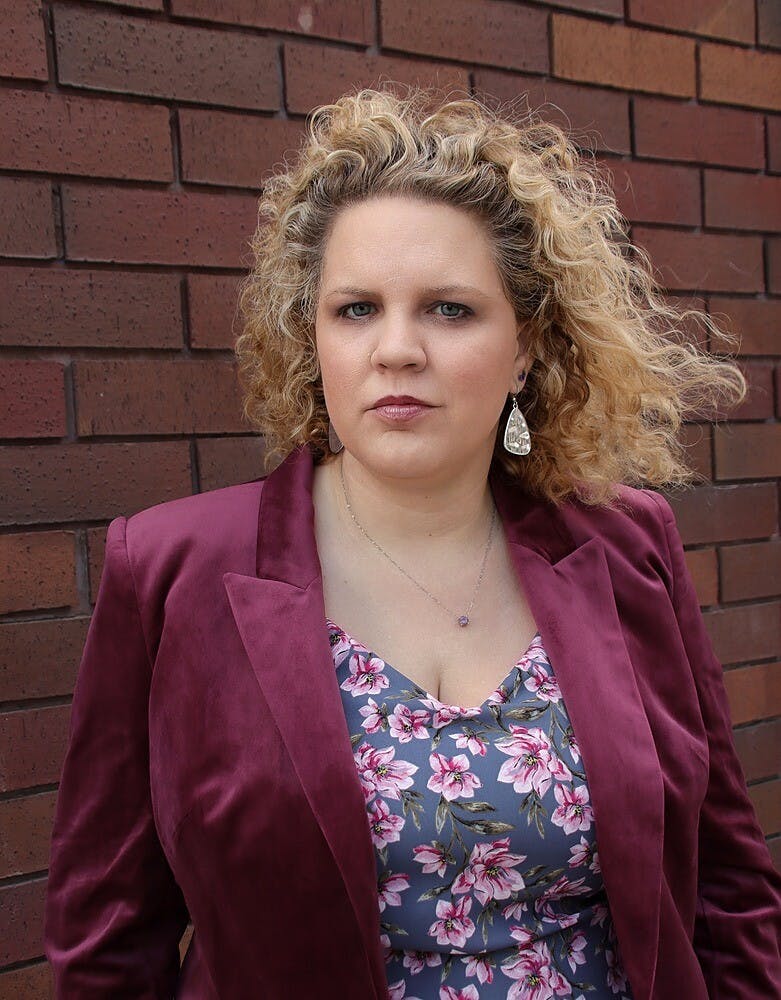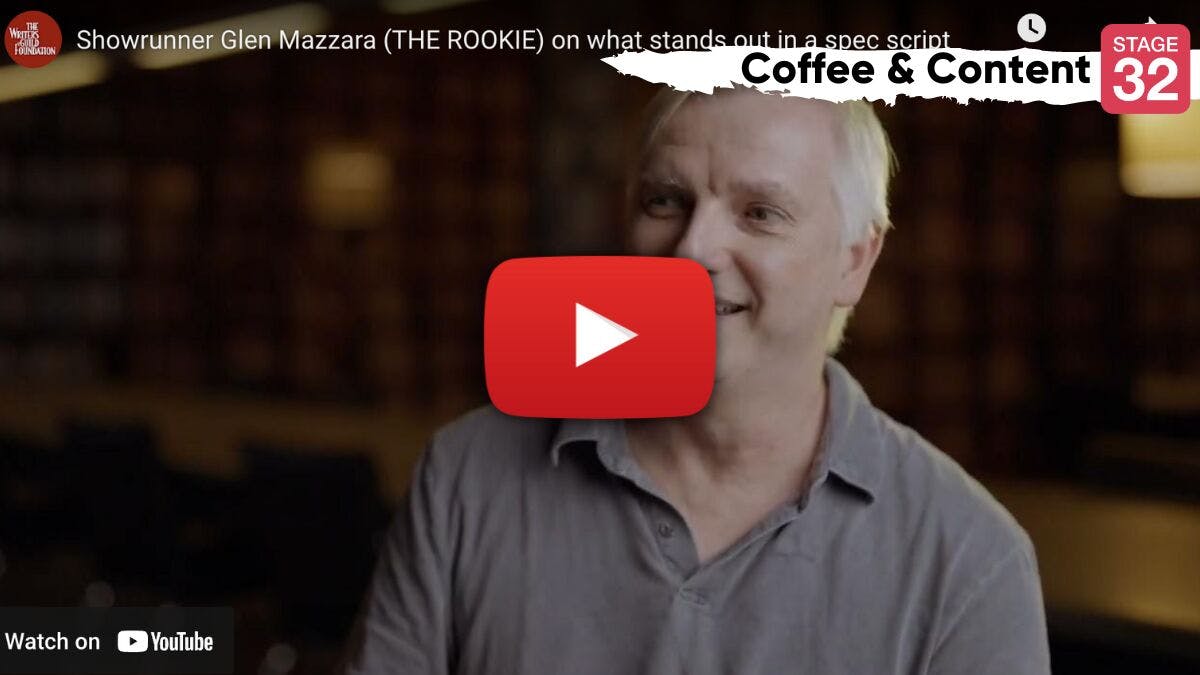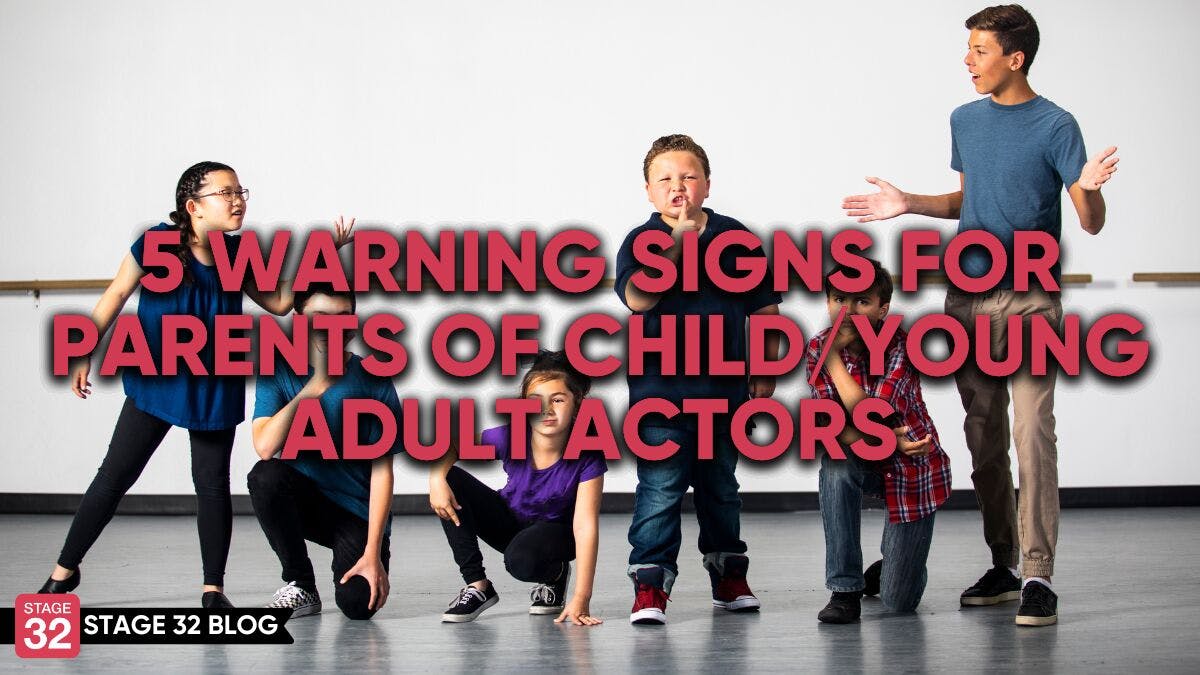Part V: Writer Held Hostage

 Doug Richardson
Doug Richardson
WEEK #69 JUST WHEN I THOUGHT I WAS OUT...
It would go like this. There would be a meeting of some sort. Be it at the editing room or during dialogue looping or after huddled moments following a test screening or on a five-way conference call. If Bruce and Florent were present, I had to be too. Director and movie star would be all smiles and adoration, parting always with a bro-hug, only then race to see who could be the first to call me. My cell phone would vibrate and I knew before looking at the screen that it would be either Bruce or Florent. Then seconds after answering, the other line would beep. It got so I could not only calculate when the first call would come, but what the agendas were.
"You gotta convince Florent to..." is how the movie star would begin.
"I need you to get Bruce to agree to..." is how the director would start.
Then...
"He is too Goddamn European about every Goddamn thing!"
"He is too big a star. A bully. Too used to getting his own way!"
"I know the French. It was the same fuckin' shit with Luc Besson!
"He thinks he's John McClane! But he's not. He's just Bruce Willis from New Jersey!"

All the while I was supposed to be writing the latest version of Die Hard 4. Bruce would see me, interrogate me as to why the hell I wasn't locked in a hole with my laptop spitting out John McClane one-liners. I would express to Bruce that it was my preference to be off somewhere writing, then add a reminder that I still hadn't been paid a single dime beyond that original three-week favor.
"How much you getting' paid for Die Hard?" he'd retort.
That's where I'd laugh. I was way beyond feeling foolish for toiling over a year without pay on Hostage. The movie was in the can. A release date was set. Moving on.
Sometime before Christmas, we screened the movie for a test audience in Agoura. The scores for women, though still high, had dropped from the previous run-through. At the next morning's post mortem attended by all the producers, company lackies, the big movie star, and me, I suggested those numbers might've dropped because of the removal of what we'd come to refer to as "the ambulance scene."
The scene in question depicted Bruce, as the blackmailed former hostage negotiator, ripping apart the ambulance interior in an act of bitter frustration and release. Bruce was on record that he didn't like the scene. Because he was the resident eight-hundred-pound gorilla in the room, nobody bothered to ask him why. Well, nobody but the idiot writer. Bruce said he thought the scene didn't serve the story. But I knew different. In one of our two AM phone calls, Bruce had privately confided that didn't buy his own performance in the scene. His call. Like I said before, it's Bruce's ass up there on screen. The bigger the star, the bigger the target. But after the test screening, I felt the missing scene spoke to women because it held so much emotion about the character's wife and daughter being in peril. I politely suggested that if Bruce revoiced his performance in an ADR session-and maybe with a little more editing-he might render a new opinion of the scene.
Whoops.
At least that's what I thought. It could've been that kind of hushed moment when I was left to wither under the bald-headed glare of the big international movie behemoth. Instead, Bruce smirked and said, "Sure, Dougie. We can try it. But no promises."
Moments later, in the men's room, Bruce was washing his hands when he added, "Okay. So you can have your ambulance scene. But Florent has to cut that stupid upside-down POV shot."
Tit for tat. What Bruce was talking about was a single, three-second-shot from the point of view of one of the dying brothers. Actor Jonathan Tucker enters frame upside-down. It always tossed Bruce and had been one of the many bones of contention I'd tried to arbitrate. I promised that Bruce I'd see what I could do.
Then, as I was mumbling to myself for the nine-thousandth time about how I wasn't getting paid for this shit, Mark Gordon took me aside and said, "Look. You've been on this movie for way over a year. Think I've finally worked out a way for you to get paid."
Hallelujah.
It was a back-end deal. Something tied to Bruce's break-even-trigger-payment-whatchamacallit. I didn't care. It was better than squat. The next day, my lawyer connected with the production's attorney who asked us to come up with a number that was fair. Fair? Like the company'll ever pay that. Instead, we decided on a nominal sum that wouldn't incur weeks and weeks of counter offers. The following day, before even my lawyer could relay our response, the company's lawyer announced the offer was off the table.
Off the table? Only twenty-four hours after they'd put it on the table? I called Mark, who cursed loudly, then promised to get into it. A week later, the offer to fairly compensate me was offered once again. We countered with our meager number. Only to be informed on the following day that... you guessed it... the offer was, once again, off the table.
I threw up my hands. I was so done. Or that's what I'd convinced myself for a few milliseconds.
I'd decided that as fair and satisfactory recompense for a three-week favor that had turned into more than a year of my life, I would accept the writing credit I'd dearly protected by politely refusing that eons-ago-offered producer's position. So at my request, the company submitted a Tentative Notice of Credit to the Writer's Guild, listing both Robert Crais and myself as co-screenwriters of Hostage.
Then Robert Crais officially protested.
The WGA credits department called to inform me that the book's author, who'd finally been paid in full, was seeking sole screenwriting credit.
"I thought you said Robert Crais was a cool guy?" I barked at my war buddy, David Wally.
"And he was a cool guy," yelled David, "Until the prick-asshole decided to sue the fuckin' movie!"
We both laughed. Though inside I was sick at the idea that, after all I'd been through-the nights, the wars, not to mention the thousands upon thousands of words I'd strung together in order to make Hostage something worth missing a year of my children's lives-it would be up to three anonymous WGA arbiters to decide if my name would even be on the final print.
I wrote a note to Bob Crais. I straight-up asked him if he honestly felt he deserved sole credit on the film and that I deserved none whatsoever.
Bob Crais responded with a succinct note, reading: "Doug. I honestly do. Bob."
I was at the Cheyenne offices in Santa Monica when the WGA credits coordinator called to say the three anonymous arbiters had awarded me sole screenwriting credit on Hostage. Though I was obviously pumped, I couldn't help noticing that the credits coordinator sounded shaky and disturbed when giving me the good news. When I asked her why, she was only allowed to say that seconds before dialing me she'd been the phone with Robert Crais, delivering him the bad news. I expect that, by her spooked behavior, Bob might've subjected the defenseless messenger with an ego-blast of angry indignation.
David Wally high-fived and hugged me. "At least you'll get your credit," he said.
Three months later, the movie opened to modest box office success. Though Miramax claimed the picture was on two thousand screens, a source inside Disney insisted that the number was closer to fifteen hundred. And with no screen expansion expected, the per screen take turned out to be pretty damn respectable.
Then there were the reviews. Where the Los Angeles Times loved the picture, referring to my script as "fiendishly clever," a New York Times critic blamed me for wasting two hours of her life. Only two hours, I wondered? Really? Did you get paid for that two hours?
So in the end, was it worth it?
Retrospect is a true human gift. And, as a writer, I put a great value in experiences,without which I wouldn't have anything worth a damn to spill onto the page. During the making of Hostage, the movie adaptation of my second novel, True Believers, that I'd been prepping with Japanese horror-meister, Hideo Nakata, hit a royal iceberg and sunk to the bottom of the Hollywood sea. Then, after filming ended, I completed my obligation to Paramount - an adaptation of an Elmore Leonard novella - only to have it quickly placed into turnaround. Though I might add that the producers and I were relatively positive the picture would never get made at that particular studio.
As for getting paid for my efforts, as much as there was never any actual payment for my services beyond the now infamous "three week favor," Bruce and Arnold made certain Fox paid me a premium for my work on the fourth installment of the Die Hard series. Then Florent Siri and I teamed on an edgy biopic of the famed con man, Christophe Rocancourt. The French producers signed a WGA deal, paid me well, and provided for beaucoup round trip tickets to Paris. First Class. Sure, they again attempted to reeducate my unrefined palate on the joy of tasting cheese. I politely refused. Then in an act of international peace-making, Imade up for my lack of culinary couth by enjoying plenty of the country's best wine.
Bob Yari, the financier, and his many production companies went belly up, declaring bankruptcy and leaving actors, assistant directors, not to mention Florent and myself, owed millions in foreign residuals. To date, not SAG, not the DGA, nor the WGA have had any success getting their hands on those lost monies.
But then there's this last and lovely nugget.
Dominique Carrara, the French art consultant who accompanied Florent to America and shared my office for months as I wrote the movie, who daily inquired of my wife if she had a sister? Yeah. That Dominique. He finally met my wife's cousin Yvonne at the New York premier of Hostage. They hit it off and, though still planning to one-day marry, currently live in Paris and are raising two breathtaking children, the eldest of whom is my fire-maned Goddaughter, Shayne.
So for that alone? Hell yes. It was worth it.
---
Remember, Doug will be available throughout the series to answer any inquiries or humbly accept accolades. Now is the chance to ask an industry insider those questions about the craft, the business, or his wife's baking, burning inside of you.
Don't forget to check out Doug's Stage 32 profile and website. You can also follow @bydougrich on Twitter.
Cheers,
RB
About the Author

Doug Richardson
Screenwriter, Author
Doug Richardson’s movie credits include Die Hard: Die Harder, Bad Boys, and Hostage. As a novelist, he’s penned five suspense thrillers, his most recent are 99 Percent Kill, The Safety Expert, Blood Money. Doug also posts a weekly blog and has published the first collection titled The Smoking Gun.









